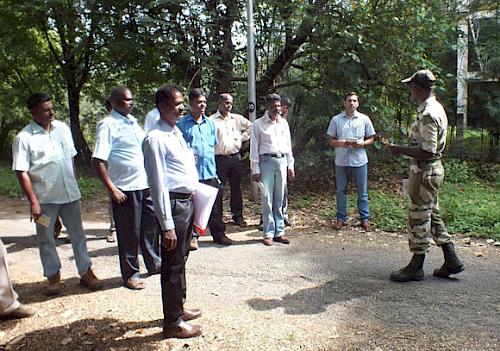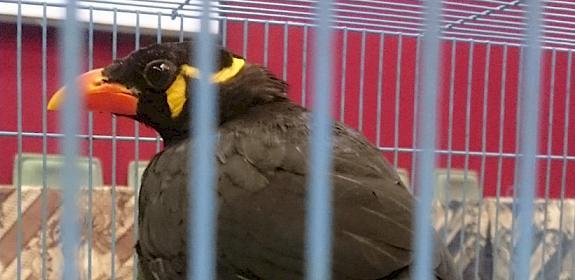Coimbatore wildlife law enforcement training breaks new ground
Coimbatore, India, 28th November 2014—A TRAFFIC-convened capacity building programme to strengthen wildlife law enforcement in India broke new ground earlier this month when for the first time enforcement officials from three adjoining States in the south-west of the country (Tamil Nadu, Karnataka and Kerala) met to receive hands-on training in detecting wildlife poaching and controlling scenes of crime.

The 120 participants included officials from the departments of Police, Forests, Customs, Railway protection Forces, Special Task Force, and the Postal department, indicating the wide interest in wildlife protection and conservation.
“The threat from poaching for illegal trade in this region is largely due to its geographical location at the junction of three States where poachers have the opportunity to operate across provincial borders,” said Dr Shekhar Kumar Niraj, Head of TRAFFIC in India.
“This capacity building programme was organized with a specific view to strengthening protection of animals including the Tiger, Leopard, Elephants, bears plus several lesser known species that inhabit this rich yet vulnerable biodiversity hotspot of the Western Ghats.”
Together, the three States are home to seven Tiger Reserves.
Almost 80 participants took part in a half-day field session, during which four mock crime scenes were investigated in the forested campus of the Tamil Nadu Forest Academy where the workshop took place.
Participants also received training on the detection of crime relating to plant and timber species, learning, for example, how to detect illegal felling and how to assess plant diversity using a quadrant method, while further practical training was given on the use of modern technology such as deep search metal detectors for locating snares.
Training sessions were also conducted on the use of cyber forensics, intelligence collection and collation, species identification, DNA fingerprinting and wildlife forensics, and sessions on legislation and jurisprudence toward achieving higher conviction rates.
Experts assisting with the crime scene simulations included trained officials from the Special Task Force from Tamil Nadu, scientists from Madras Forensic laboratory and a Madras High Court lawyer.
The capacity building programme was organized by TRAFFIC in collaboration with the Tamil Nadu Forest Department and WWF-India and was the latest in a series spanning seven years.
The novel approaches introduced during the latest meeting have led to a flood of requests for similar training programmes to be conducted elsewhere in the country, including a special request from the Commissioner of Police, Coimbatore, Mr N. Vishwanathan, for a training programme for senior police officials from districts in the Western Ghats region.



